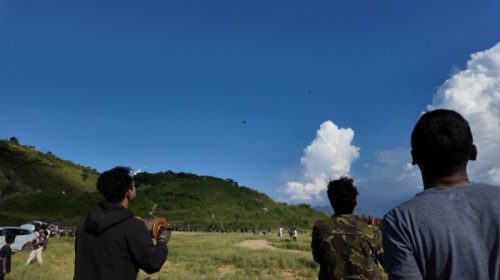Nepal has officially ended French security firm IDEMIA’s 16-year control over its passport system, awarding a landmark contract to two German companies after a protracted legal and procurement battle.
In a decisive ruling this week, the Public Procurement Review Committee (PPRC) rejected IDEMIA’s challenge to the Department of Passport’s (DoP) decision to split its e-passport contract between Veridos GmbH and Muehlbauer GmbH. The PPRC found IDEMIA’s claims of irregularities in the procurement process to be without basis, effectively clearing the way for the German firms to begin work.
As a consequence of the failed challenge, IDEMIA will forfeit a $560,000 bid security, which the PPRC has ordered to be deposited into the account of Nepal’s Inland Revenue Office, the PPRC decision obtained by this daily read.
The DoP subsequently issued Letters of Award on July 22 to Veridos and Muehlbauer, requesting both firms to sign contracts within 15 days. The two companies are expected to begin delivering services under the new e-passport system by February 2026.
IDEMIA, which first won the passport contract in 2009, had long been criticized for both pricing and transparency. A 2024 report by Nepal’s Auditor General revealed that while IDEMIA initially secured a contract to supply 2 million booklets, the firm later obtained a variation order to supply 3.1 million booklets-a 150 percent increase-despite not delivering the IT infrastructure included in the original contract.
What raised deeper concern was the cost. IDEMIA had charged $10.13 per booklet, amounting to $67 million in total. In contrast, the new combined bid from Veridos and Muehlbauer came in at $55 million, or $8.59 per booklet, for both the booklets and full enrollment systems-a difference of $12 million.
Officials said the disparity underscored systemic flaws in procurement oversight and highlighted the need to diversify vendors in critical infrastructure.
While IDEMIA denied any involvement in a separate Public Interest Litigation (PIL) filed at the Supreme Court to block the new award, the same lawyers defending IDEMIA at the PPRC were also seen arguing the PIL-raising eyebrows among legal observers.
“The coordination of legal challenges was a clear attempt to delay the new contract,” said a senior government legal advisor. “IDEMIA sought to retain control not through competitive pricing or innovation, but by exploiting the legal process.”
Both the Supreme Court and the PPRC have now dismissed challenges to the new award, allowing the DoP to move forward with implementation.
Under the new arrangement, Veridos, a global identity solutions firm partially owned by the German government’s Bundesdruckerei, will be responsible for manufacturing Nepal’s new biometric passports. Muehlbauer will build and deploy the digital infrastructure for enrollment and personalization across all 77 districts and Nepal’s diplomatic missions abroad.
The shift is expected to bring Nepal’s passport system in line with the latest ICAO-compliant e-MRTD standards and significantly improve operational efficiency and data security. Officials say the first batch of passports from Veridos will be delivered within six months of contract signing.
“This is more than a change in vendors-it’s a break from years of opacity and inflated costs,” said one senior DoP official involved in the transition. “We’re looking forward to a transparent, secure, and cost-efficient system.” The DoP is expected to complete onboarding and full rollout of the new system by early 2026.








